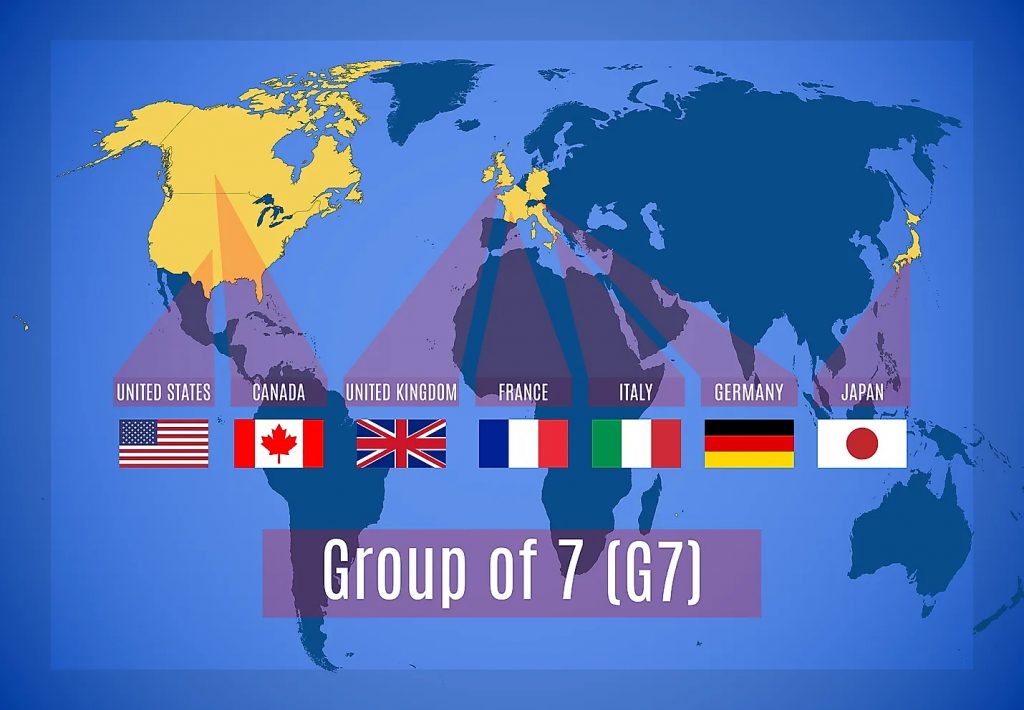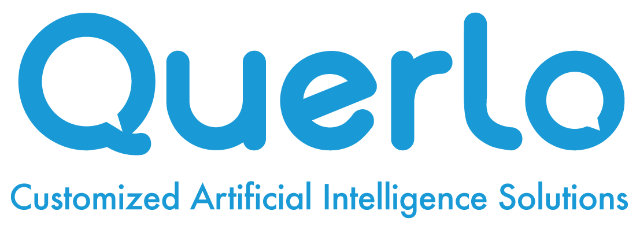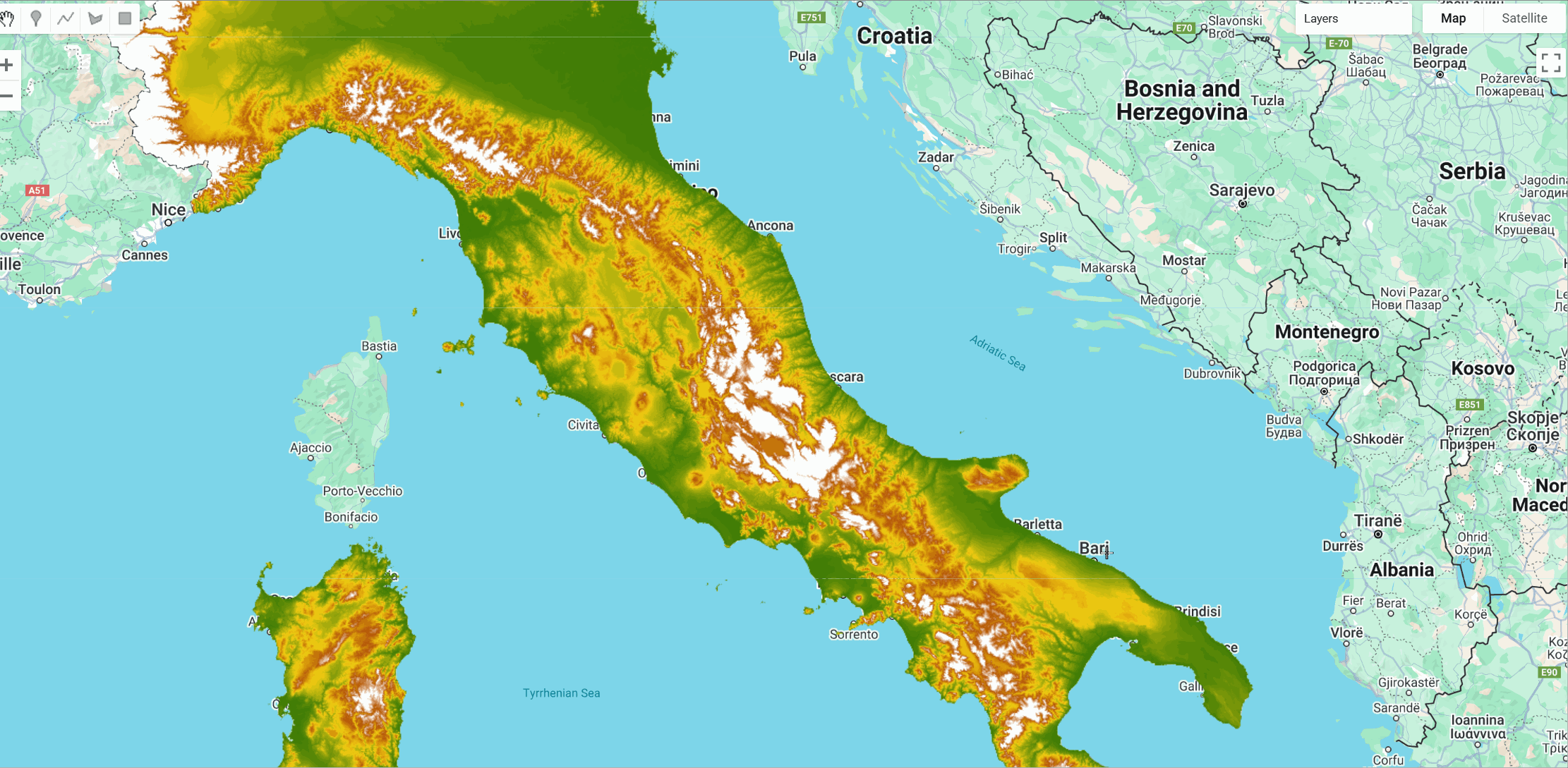In today’s rapidly shifting geopolitical landscape, where software is built matters almost as much as how it’s built.
For U.S. companies developing artificial intelligence (AI) solutions, choosing a geopolitically safe and legally aligned jurisdiction can make the difference between long-term growth and serious operational risk.
G7 countries, including the United States, Canada, Japan, Germany, France, the United Kingdom, and Italy, offer a unique combination of stability, security, and strategic alignment that makes them prime locations for AI development. Among them, Italy is emerging as a particularly strong hub for trusted, future-proof innovation.

1. Stability and Rule of Law as a Competitive Advantage
G7 nations are characterized by stable political systems, strong institutions, and a well-defined rule of law.
This translates into:
- Predictable legal environments
- Strong intellectual property (IP) protections
- Reliable contract enforcement
For U.S. companies operating in sensitive industries like AI, this stability is a strategic asset. It reduces exposure to political turbulence, regulatory uncertainty, and sudden operational disruptions, risks that are increasingly present in non-aligned regions.
2. Regulatory Alignment and Compliance Simplification
AI development involves handling sensitive data, export-controlled technologies, and complex supply chains.
By locating software development in a G7 jurisdiction, U.S. companies benefit from:
- Regulatory alignment with U.S. standards and allied frameworks
- Strong privacy and data-protection laws (e.g., GDPR in the EU)
- Easier compliance with U.S. export controls, ITAR, and cybersecurity rules
This reduces legal overhead and speeds up go-to-market timelines for new AI products.
3. Strengthened Cybersecurity Through Allied Cooperation
The G7 Cyber Expert Group (CEG) and other intergovernmental frameworks ensure close coordination among member states on cybersecurity, critical infrastructure protection, and cyber-resilience.
This shared security posture:
- Creates a trusted development environment
- Reduces exposure to cyberattacks from adversarial states
- Supports joint response capabilities in case of incidents
For companies building AI models that process critical or sensitive data, this level of trust is non-negotiable.
4. Supply Chain Resilience and “Friend-Shoring”
The U.S. government has made “friend-shoring” — locating critical technology development in trusted allied nations — a strategic policy priority.
This approach:
- Reduces dependency on high-risk countries
- Protects against sanctions or trade disruptions
- Ensures continuity of operations during geopolitical tensions
Choosing G7 countries, particularly those with strong data infrastructure, helps future-proof AI development operations.
5. Italy: A Strategic G7 Partner for Trusted AI Development
Among G7 members, Italy offers a particularly compelling environment for U.S. companies:
- 🇮🇹 G7 Presidency Leadership: Italy has been at the forefront of shaping international AI governance, advancing the Hiroshima AI Code of Conduct and transparency frameworks.
- 🛡️ Strong Cybersecurity Infrastructure: Through its Agenzia per la Cybersicurezza Nazionale (ACN) and National Cybersecurity Strategy 2022–2026, Italy has built robust legal and operational protections for digital infrastructure.
- 📜 EU & G7 Legal Alignment: As both an EU member and a G7 country, Italy combines GDPR, NIS2, and AI Act readiness with transatlantic regulatory trust.
- 🤝 Stable Allied Jurisdiction: Italy’s deep diplomatic and security alliances with the U.S. make it an ideal environment for sensitive R&D and cross-border operations.
In practical terms, this means that AI companies operating in or with Italy can scale confidently, knowing their work is protected by advanced legal frameworks, international cooperation, and shared democratic values.
6. Trust as a Market Signal
Clients, investors, and regulators increasingly ask not only what a company builds, but also where it builds.
“Made in a G7 country”, particularly a jurisdiction like Italy that champions cybersecurity and AI ethics , has become a signal of trust, quality, and compliance.
For AI firms seeking enterprise or government contracts, this trust is a strategic differentiator.
7. Final Thoughts
AI is not just a technological race, it’s also a geopolitical one. U.S. companies that position their software development in trusted G7 jurisdictions gain not just security, but also regulatory clarity, strategic resilience, and market credibility.
Italy, with its blend of G7 membership, EU regulatory strength, and national cybersecurity leadership, stands out as a strategic partner for building the future of AI safely and responsibly.
My personal opinion: “Life is too short not to do business with Italy”
Sources: G7 Ministerial Declarations, U.S. Treasury “friend-shoring” policy statements, NIST AI RMF, OECD G7 AI Toolkit, Italy National Cybersecurity Strategy, ACN, EU GDPR & NIS2 directives.
🏛️ G7 & International Frameworks
- G7 Industry, Tech & Digital Ministerial Declaration (2024)
https://www.g7italy.it/wp-content/uploads/G7-Industry-Tech-and-Digital-Ministerial-Declaration-Annexes-1.pdf - OECD – G7 Toolkit for Artificial Intelligence in the Public Sector (2024)
https://www.oecd.org/content/dam/oecd/en/publications/reports/2024/10/g7-toolkit-for-artificial-intelligence-in-the-public-sector_f93fb9fb/421c1244-en.pdf - G7 Cyber Expert Group (CEG) – U.S. Treasury
https://home.treasury.gov/policy-issues/international/g-7-and-g-20/g7-cyber-expert-group - G7 Leaders’ Statements on Economic Security (Hiroshima & Apulia Summits)
https://www.g7hiroshima.go.jp/en/
https://www.g7italy.it/ - G7 AI Reporting Framework (Hiroshima AI Code of Conduct)
https://innovazione.gov.it/notizie/articoli/en/g7-digital-tech-working-group-finalizes-reporting-framework-for-advanced-ai-syste/ - G7 & AI Safety (Policy Analysis) – University of Toronto G7 Research Group
https://www.g7.utoronto.ca/evaluations/2024apulia/davies-ai.html
🇺🇸 U.S. Strategic & Regulatory Context
- Executive Order 14117 (Protecting Americans’ Sensitive Data)
https://www.federalregister.gov/documents/2024/02/28/2024-04038/executive-order-on-protecting-americans-sensitive-data-from-foreign-adversaries - U.S. Treasury – “Friendshoring” Strategy Statements (Janet Yellen)
https://home.treasury.gov/news/press-releases - NIST AI Risk Management Framework
https://www.nist.gov/itl/ai-risk-management-framework - CISA – ICT Supply Chain Risk Management
https://www.cisa.gov/supply-chain-integrity
🇮🇹 Italy – Cybersecurity & AI Policy
- Italy – National Cybersecurity Perimeter Law (Trade.gov overview)
https://www.trade.gov/country-commercial-guides/italy-cybersecurity - Agenzia per la Cybersicurezza Nazionale (ACN) – Official site
https://www.acn.gov.it/portale/en/ - Italy’s National Cybersecurity Strategy 2022–2026
https://www.acn.gov.it/portale/en/strategia-nazionale-di-cybersicurezza - G7 Cybersecurity Working Group – Italy’s Role
https://www.acn.gov.it/portale/en/w/gruppo-di-lavoro-g7-sulla-cybersicurezza - Chambers – Italy Cybersecurity Trends 2025 (legal analysis)
https://practiceguides.chambers.com/practice-guides/cybersecurity-2025/italy/trends-and-developments - IAPP – Italy Updates National Cybersecurity and Data Protection Framework
https://iapp.org/news/a/italy-updates-national-cybersecurity-and-data-protection-framework/

